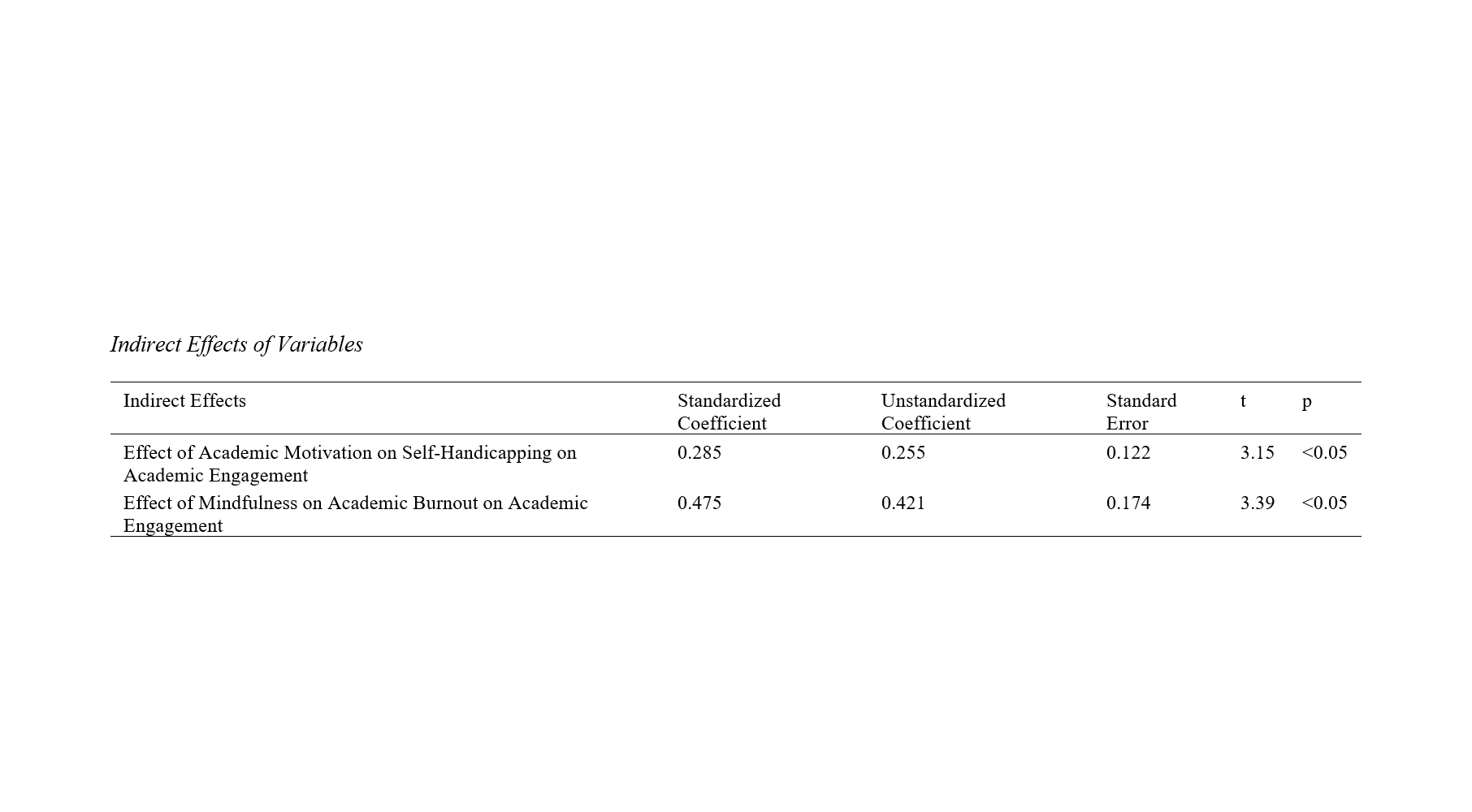Prediction of Academic Engagement Based on Mindfulness and Perceived Academic Motivation with the Mediating Role of Academic Burnout and Academic Self-Handicapping
Keywords:
Academic Engagement, Mindfulness, Academic Motivation, Academic Burnout, Academic Self-HandicappingAbstract
Objective: Students in every society are an efficient and future-building class, a group that constitutes a significant portion of the planning and budget of each country. Their academic progress is crucial for their future success. The present study aimed to predict academic engagement based on mindfulness and perceived academic motivation with the mediating role of academic burnout and academic self-handicapping among students at Islamic Azad University.
Methods and Materials: This research utilized a descriptive-correlational methodology. The statistical population included all students of Islamic Azad University in Tehran who were studying in the academic year 2020-2021. A random sampling method was used to select a sample of 350 students. Data analysis was conducted using structural equation modeling and factor analysis through AMOS software. The instruments used included the Academic Engagement Questionnaire by Reeve (2013), the Freiburg Mindfulness Inventory (FMI-SF), Harter's Standard Perceived Academic Motivation Questionnaire, the Academic Burnout Questionnaire by Pekrun, Goetz, and Perry (2020), and the Academic Self-Handicapping Questionnaire by Jones and Rodault (2020). The factor analysis and Cronbach's alpha results confirmed their validity and reliability.
Findings: The results indicated that academic motivation and mindfulness directly and positively predict academic engagement, while academic self-handicapping and academic burnout directly and negatively predict academic engagement. Additionally, the proposed research model demonstrated good fitness.
Conclusion: It can be concluded that mindfulness and academic motivation, considering the mediating role of academic burnout and academic self-handicapping, have a significant impact on students' academic engagement.
Downloads

Downloads
Additional Files
Published
Submitted
Revised
Accepted
Issue
Section
License

This work is licensed under a Creative Commons Attribution-NonCommercial 4.0 International License.








